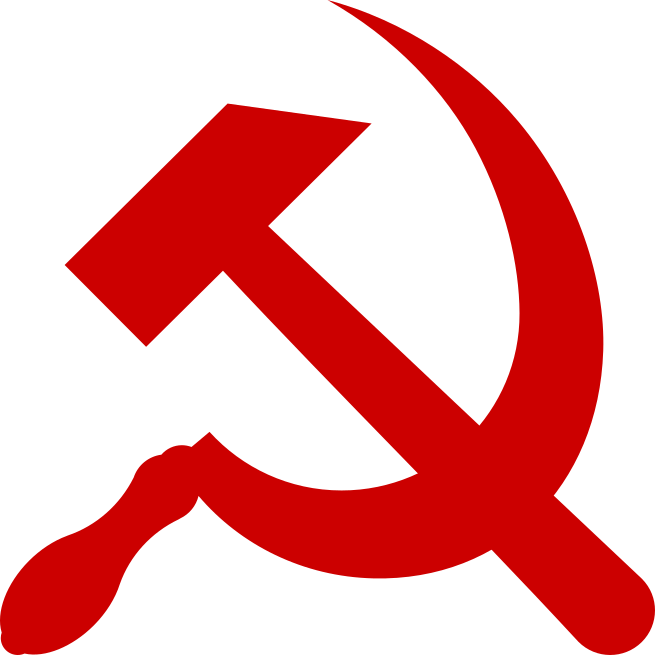Main Difference
The main difference between Capitalism and Communism is that the Capitalism is a economic system based on private ownership of the means of production and the creation of goods or services for profit and Communism is a socialist political movement and ideology.
-
Capitalism
Capitalism is an economic system based on the private ownership of the means of production and their operation for profit. Characteristics central to capitalism include private property, capital accumulation, wage labor, voluntary exchange, a price system and competitive markets. In a capitalist market economy, decision-making and investments are determined by every owner of wealth, property or production ability in financial and capital markets, whereas prices and the distribution of goods and services are mainly determined by competition in goods and services markets.Economists, political economists, sociologists and historians have adopted different perspectives in their analyses of capitalism and have recognized various forms of it in practice. These include laissez-faire or free-market capitalism, welfare capitalism and state capitalism. Different forms of capitalism feature varying degrees of free markets, public ownership, obstacles to free competition and state-sanctioned social policies. The degree of competition in markets, the role of intervention and regulation, and the scope of state ownership vary across different models of capitalism. The extent to which different markets are free as well as the rules defining private property are matters of politics and policy. Most existing capitalist economies are mixed economies which combine elements of free markets with state intervention and in some cases economic planning.Market economies have existed under many forms of government and in many different times, places and cultures. Modern capitalist societies—marked by a universalization of money-based social relations, a consistently large and system-wide class of workers who must work for wages, and a capitalist class which owns the means of production—developed in Western Europe in a process that led to the Industrial Revolution. Capitalist systems with varying degrees of direct government intervention have since become dominant in the Western world and continue to spread. Over time, capitalist countries have experienced consistent economic growth and an increase in the standard of living.
Critics of capitalism argue that it establishes power in the hands of a minority capitalist class that exists through the exploitation of the majority working class and their labor; prioritizes profit over social good, natural resources and the environment; and is an engine of inequality, corruption and economic instabilities. Supporters argue that it provides better products and innovation through competition, disperses wealth to all productive people, promotes pluralism and decentralization of power, creates strong economic growth and yields productivity and prosperity that greatly benefit society.
-
Communism
In political and social sciences, communism (from Latin communis, “common, universal”) is the philosophical, social, political, and economic ideology and movement whose ultimate goal is the establishment of the communist society, which is a socioeconomic order structured upon the common ownership of the means of production and the absence of social classes, money, and the state.Communism includes a variety of schools of thought, which broadly include Marxism and anarchism (anarcho-communism), as well as the political ideologies grouped around both. All of these share the analysis that the current order of society stems from its economic system, capitalism; that in this system there are two major social classes; that conflict between these two classes is the root of all problems in society; and that this situation will ultimately be resolved through a social revolution.
The two classes are the working class—who must work to survive and who make up the majority within society—and the capitalist class—a minority who derives profit from employing the working class through private ownership of the means of production.
The revolution will put the working class in power and in turn establish social ownership of the means of production, which according to this analysis is the primary element in the transformation of society towards communism.
Critics of communism can be roughly divided into those concerning themselves with the practical aspects of 20th century communist states and those concerning themselves with communist principles and theory.
-
Capitalism (noun)
A socio-economic system based on private ownership of resources or capital.
-
Capitalism (noun)
An economic system based on private ownership of the means of production and their operation for profit.
-
Capitalism (noun)
A socio-economic system based on private property rights, including the private ownership of resources or capital, with economic decisions made largely through the operation of a market unregulated by the state.
-
Capitalism (noun)
An economic system based on the abstraction of resources into the form of privately owned capital, with economic decisions made largely through the operation of a market unregulated by the state.
-
Communism (noun)
Any advocating holding the resources collectively.
“aspheterism|q1=dated, rare”
-
Communism (noun)
Any political social system that implements a communist political philosophy.
-
Communism (noun)
The international socialist society where classes, money, and the state no longer exist.

